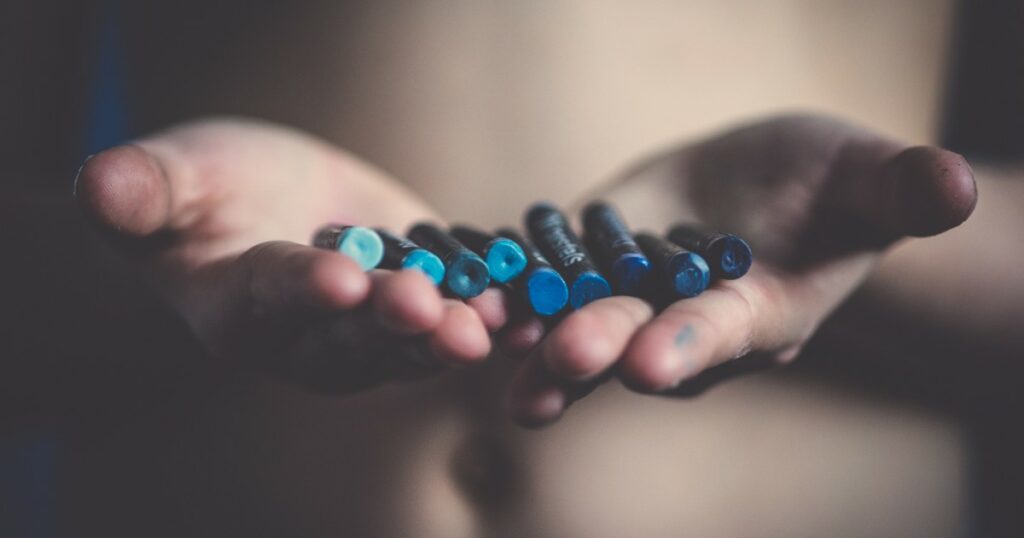by Rosie Adle
A boy in my Kindergarten class had a 64-count box of Crayola crayons. Did it have a built-in sharpener? You know it did! That whole year, I was sure my sunny-skied scrawls would have turned out beautifully with the pointed help of periwinkle and goldenrod, but I was stuck with dull blue and yellow.
“Someday,” I whispered to my own young self, “if I have kids, I’ll buy them the biggest box of crayons in the store!”
Here in 2019 USA, we live in one of the more prosperous times and places in all of human history. Some of us are pretty soft for it. Some of us think we roughed it because we had only eight crayons in our desk at school. Some of us wouldn’t dream of making our own children work with such a limited color palette. Some of us want better for our beloved offspring than dull blue and yellow.
Hannah Coulter, the titular character of a 2004 Wendell Berry novel, wanted better for her children. She lived during a hard time. She put in hard work. She wanted her kids to sweat and cry less than she had. She wanted them to have more financial security and opportunities. It all seemed reasonable, really. But at the end of her life, she recognized that her grown children only had more on one hand — the hand that measures in terms of earthly gain. They all had less than she wanted for them in terms of personal character and godly virtue and lasting relationships. They had less faith, less hope, less love.
It’s not hard to pick up on what the world wants us to want for our children: nicer houses, more prestigious work, higher education, greater achievements, healthier bodies, vroomier vehicles, finer wine. In other words: bigger boxes of crayons.
But what would God have us want for them?
We could aspire for our children to spend more time in God’s Word and prayer, or to attend church more regularly than we may have done in some seasons of life. If our grown children marry, we might hope for them to have greater love or respect for their spouse. If they have children, we could hope for them to have more wisdom in raising them.
Married or single, parents or not, we could pray for them to have more confidence in the Lord’s provision, more courage to share the Gospel of Christ, more zeal for what is good, more generosity toward those who lack and more faith in the words and promises of Jesus. (We could pray for those things for ourselves, too.)
Let’s help our children seek not the kingdom that’s gained by rising to the top of an earthly hill. Let’s help them rather seek first the Kingdom of God — Christ lifted up for them and for us and for the world. In seeking first the Kingdom, we can trust that all the things that truly matter will be added unto them by their Father in Heaven.
Let’s want better for our children — not that they would have more of the things of this world, but that they would long for them less.
Deaconess Rosie Adle is an online instructor for the distance deaconess program of Concordia Theological Seminary in Fort Wayne, Ind. In hindsight, she understands that her Kindergarten creations flopped because she’s not good at art.







Thank you, Rosie. Well said! It is easy to lose focus on the kingdom of God with so many messages and choices in this world, both for us and for our children. So many good things, yet prioritizing any of them over Christ can lead to a slow erosion of our faith. I think another part of the problem is that many parents who want a life of faith for their children aren’t really sure how to invest in this on a daily basis. There are parents who weren’t raised as Christians and need some mentorship. Hopefully, church families are providing this.